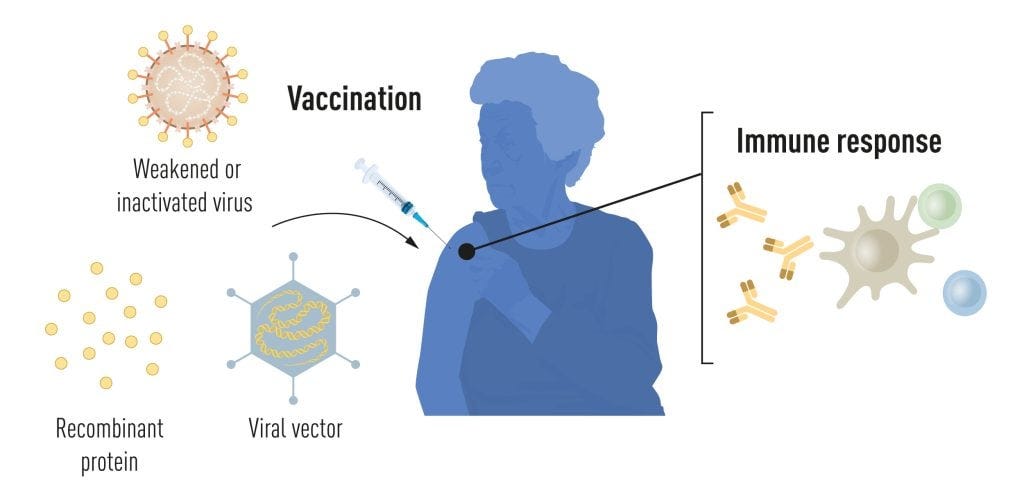Nobel Prize awarded to mRNA researchers in effort to "Encourage hesitant people to opt for vaccination in the reassurance that it is safe and effective"


On 2 October, the biochemists Katalin Karikó and Drew Weissman received the Nobel Prize for medicine and physiology, for their contributions to the development of mRNA vaccine technology. In 2005, Karikó and Weissman solved a crucial problem that had bedeviled all prior attempts to develop RNA-based therapies. This problem was that patients injected with the messenger RNA experienced severe adverse reactions, as their immune systems attacked the foreign genetic material. These reactions, they realised, were provoked primarily by the nucleoside base uridine. By modifying the therapeutic RNA to replace uridine with the isomer pseudouridine, they could evade our immune defences and trick human cells into producing whatever proteins the injected RNA might code for. It is this discovery that made the Moderna and the BioNTech/Pfizer jabs possible. That our natural biological defences might have a purpose, and that manipulating our cells to manufacture pharmaceutical products in our own bodies might have its downsides, are reservations that the Nobel Committee do not share.
The idea of a Nobel for the mRNA vaccines has been in the air for a while now, but by traditional standards, Karikó and Weissman were not obvious candidates. Neither their publications nor their citations were sufficient to place them among the front-runners. In a backhanded acknowledgement of this fact, the awarding Committee have explained that they hope their reward will help to combat vaccine hesitancy (h/t Michael Esders). I am not making this up:
The Nobel Prize for Karikó and Weissman may boost confidence in mRNA vaccine research. The Nobel Committee hopes so, too: a Nobel Prize for these vaccines against Covid-19 could encourage hesitant people to opt for vaccination in the reassurance that it is effective and safe, explained panel member Olle Kämpe. Not only do mRNA vaccines against Covid-19 remain relevant – the virus continues to circulate, after all – but in the future they could also be used for other diseases such as influenza or even cancer.
Nobels do not reflect the unmediated judgment of the heavens. The convention was established by the Swedish industrialist Alfred Bernhard Nobel, who signed a will in 1895 devoting the bulk of his estate to monetary distinctions for preeminent achievements in the physical sciences, chemistry, medicine, literature and “international fraternity.” In 1968, the Sveriges Riksbank donated further funds to establish a sixth “memorial prize” in economics. In accordance with Nobel’s requirements, laureates in physics, chemistry, medicine and literature are nominated by dedicated Swedish academic committees; a Norwegian Nobel Committee appointed by the Norwegian parliament awards the peace prize. That the committees are guided by political considerations no less than by objective criteria is especially clear from their long and dubious list of Peace, Literature and Economics laureates, which all too often express the drab, flabby internationalist liberalism and the impoverished aesthetic sense that plagues contemporary Europe. It should be no surprise that the Nobel for medicine, in the wake of the politicisation wrought by the pandemic, has been corrupted by similar forces.